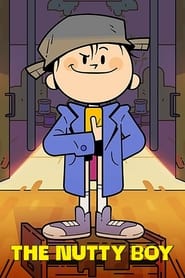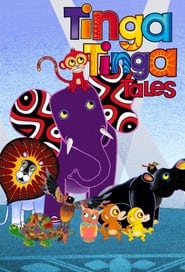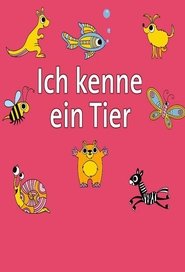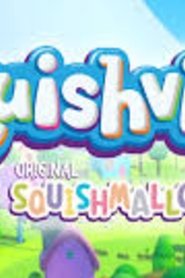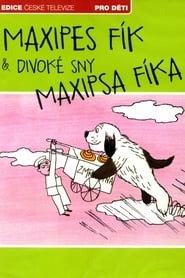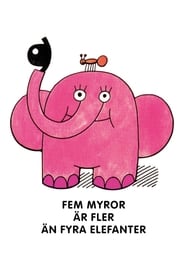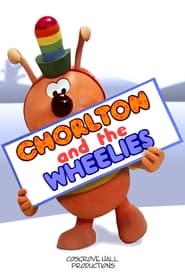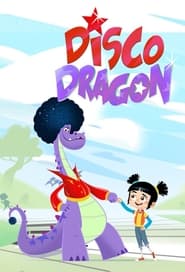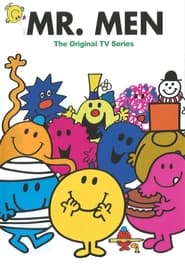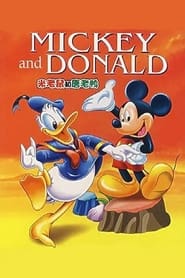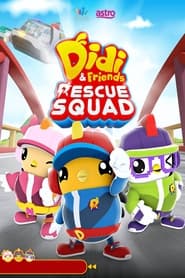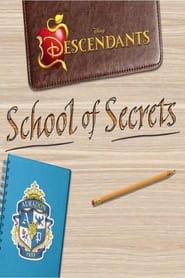Kids TV Series - Page 180
-
The Nutty Boy
2022
The Nutty Boy
2022
star 7.5Nutty Boy is an out-of-the-box kid with big ideas who loves involving everyone in his adventures — even though they don't usually go as planned! -
Tinga Tinga Tales
2010
Tinga Tinga Tales
2010
star 8Inspired by traditional African folktales and original art styles, this animated series tells the story of how various African animals came to be the way they are today. Funny and educational, each episode delivers universal lessons about community, friendship, and the consequences of one's actions. -
Ich kenne ein Tier
2012
-
喵能战士
2023
喵能战士
2023
-
Zoo Olympics
1992
Zoo Olympics
1992
star 10Drawn by French animator Picha, here are 26 episodes of the hilarious animal Olympics antics. These are parodies of Olympic events, based vaguely on behaviours in the animal kingdom, such as egg laying and rolling (chickens), slop slurping (pigs) and kangaroo boxing. -
Cave Club
2020
-
Squishville
2021
Squishville
2021
A group of four Squishmallow toys are going on adventures in a lost town called Squishville. -
Educating Marmalade
1982
Educating Marmalade
1982
star 6Marmalade Atkins is the naughtiest girl in the world. In fact, she's so wicked that her parents and social worker decide that the only thing to do with her is to blast her into space. But, knowing Marmalade, it's not going to be that easy! -
Wild Dreams of MaxiDog Fik
1983
star 8.3Somehow overgrown dog Fík was devised by writer Rudolf Čechura and painted by painter Jiří Šalamoun. And because dogs have dreams too, Fik is also dreaming about something thrilling as well as funny. The entire series is voiced by actor Josef Dvořák. And what about is Fik dreaming? Perhaps about how he once played football, how he drove the car, how he spent Christmas and how he became captain of an ocean liner. -
Fem myror är fler än fyra elefanter
1984
star 8.2Fem myror är fler än fyra elefanter or Fem myror was a 1973–75 Swedish TV-series for children, hosted by Magnus Härenstam, Brasse Brännström and Eva Remaeus. The TV-series included songs and sketches with education about letters, numbers, positions, etc. Fem myror är fler än fyra elefanter was broadcast first on 19 November 1973 on TV2 by Sveriges Television and it was also broadcast as Julkalendern 27 November –24 December 1977. Fem myror is able to buy on VHS and DVD and there are also PC games. -
Chorlton and the Wheelies
1976
star 6Chorlton and the Wheelies is an animated children's television series that ran from September 1976 until June 1979 on British Television Channel. It followed the adventures of Chorlton, a fictional happiness dragon, in Wheelie World. Chorlton and the Wheelies was created by Cosgrove Hall for the ITV station Thames Television, and the eponymous lead character gets his name from the suburb of Manchester in which the Cosgrove Hall studio was based: the legend "Made in Chorlton-cum-Hardy" is found written on the inside of the egg from which he hatches in the very first episode of the series. -
Disco Dragon
2021
Disco Dragon
2021
-
Astro and the Space Mutts
1981
star 6Astro and the Space Mutts features Astro, the family dog from The Jetsons. He teams up with two other dogs named Cosmo and Dipper, led by their human leader Space Ace. Together, the trio act as galactic police officers and travel through outer space. Don Messick reprised his role as Astro. -
Mr. Men
1974
Mr. Men
1974
star 7.7The Mr Men are a whole host of brightly colored characters that live in Misterland. All of them have names like Mr Happy, Mr Clumsy and Mr Greedy and their appearance and personality match their name. Based on the books by Roger Hargraves. -
The Adventures of Timmy the Tooth
1994
A puppet edutainment series about a talking tooth named Timmy, who uses his imagination to have adventures, with his friends and enemies. -
Feral TV
1996
Feral TV
1996
After exploring the sewers following the destruction of their homes, the Ferals discover a cable to a TV station, and start their own TV show with the name "Feral TV". -
Didi & Friends Rescue Squad
2022
There is an emergency! Didi & Friends acts as a Rescue Squad. Let's Become Heroes with Didi & Friends Rescue Squad. -
Maui Kitty's Play Day
2019
star 10Nestled between Iao Valley and Olowalu, lies a traditional Hawaiian cottage on the beach of Turtle Cove. Not far from the cottage, the Pacific Ocean, the Road to Hana and the volcano of Haleakala are only moments away for exploratory adventures for Maui Kitty and his friends. Join Maui Kitty and his friends on their entertaining adventures while learning the Hawaiian Culture and the premise of Aloha Spirit in this comedic television series. -
Descendants: School of Secrets
2015
star 7.7An unidentified girl (Lonnie) sets up a hidden camera to capture Auradon Prep's secrets. Her goal is to expose the "real" Auradon and release hidden camera footage to the public. But when Prince Ben announces that villain kids are on their way to Auradon, the hidden camera begins to reveal all sorts of attitudes, secrets, and anxieties before the villain kids' arrival.
